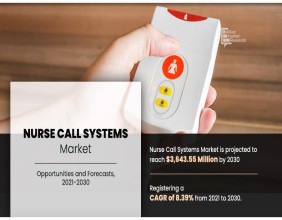Summary
- Shares of Bankrupt car giant Hertz shot up by 400% on 12 June from its historic low on 26 May, post receiving approval to raise fund through equity share offering that may fetch in almost US$1 billion to the bankrupt entity.
- The offering which is currently on hold due to on-going SEC scrutiny, could have wiped away the investors’ wealth had they bought the shares, as creditors must be repaid in full before equity investors get their dues.
- To avoid falling prey to such investment debacles, investor should understand that they are not buying a piece of paper but a part of business, thus it becomes imperative that investors do their due diligence before deploying their money.
Recent case of bankrupt Hertz is a classic example of how investors need to be wary of making investment decisions in equity market, in avowing dubious companies. While, its stock performance story has been another fascinating watch.
The $US500 million capital raising plan of bankrupt car rental player, approved by U.S. Bankruptcy Court for the District of Delaware, got under spotlight when SEC raised questions on the company’s plan of stock offering. While Hertz has pulled off the funding plan, market players can derive key lessons from the entire episode.
Hertz Stock Story
After touching historical low of US$0.56 on 26 May close, the stock price of Bankrupt car giant Hertz closed at US$5.53 on 8 June after Hertz requested to raise fund through equity offering.
The share price finally settled at US$2.83 on 12 June, representing a 405% increase from the low of US$0.41 on 26 May, after Judge Mary Walrath gave an approval of selling the stocks during a bankruptcy court hearing to offer 'potentially worthless' shares that could fetch in almost $US1 billion ($1.5 billion). Hertz was expected to raise as much as $US0.5 billion ($727 million).
The company wanted to use the proceeds to payback massive debts that led to the bankruptcy.
However, the move was considered dangerous for the unsecured shareholders as according to bankruptcy experts, this was an unusual move that could wipe out its shareholders money as creditors must be repaid in full before equity investors get anything.
The week-long drama also presented many shareholders of Hertz to capitalize on the price rally.
Good Read: Shocking! Car Rental Company, Hertz to sell $1 billion worth of Stock After Going Belly Up
While, after comments from the New York Stock Exchange, Hertz has suspended its plan to sell the 'worthless' shares stating "pending further understanding of the nature and timing" of the regulatory review.
The stock, whose trading had been halted earlier during the day, jumped to $US2.30 post the disclosure, and then slumped back to trade little changed at $US1.95 on 16 June, 2020. The company’s offering had however cautioned that prospective buyers could find themselves wiped out.
Hertz’s last close was at US$2.00 on 17 June, denoting an increase of 2.56% over previous day close price, and 42% high from its all-time low of US$ 0.56.
Lesson Well Learnt
The on-going episode of Hertz is a learning lesson for all those investors, who thought of buying its shares or other investors who may gain some wisdom from it.
How to know whether a stock can wipe you out? Stock fraud encourages investors to sell or buy stocks on false information, resulting in losses. A fraudster can be an individual or an investment firm or a broker.
Here are few notes on fraud types and tip to avoid it:
- Always check the name of the corporation closely, check all financials and data deposited for listing and seek detailed information about the corporation to make sure you are investing in a real corporation.
People can create dummy corporates whose name resemble a real corporation and sell securities of the dummy corporation. Investors while buying securities of these companies are in an impression of buying securities of the real company and thus end up being in loss.
- It is always advisable to not to trade or invest based on stock tips messages and calls.
Operators trade illiquid stocks and send messages rallying stock price. As the price increases, the operators sell off their holdings, making huge profits while other buyers of the stocks experience a loss because of fall of price later.
- While investing in small cap companies or Mini-Tender Offers, it is essential to check the name of the corporation closely, check all financials and data related to the company and scrutinize data received through messages and calls related to the stock.
A very simple way of cheating investors is by selling microcap stocks. Microcap stocks are low priced stocks issued by companies who are hard to find and has less to no information available which may not be reliable. It is easy for fraudsters to spread false information on small cap stocks, boost share price and then exit by making huge profits while other investors fall prey to the scam.
- Avoid buying a promissory note from an individual. When an individual connects with you to sell the same, there is a high chance you are falling prey to a scam.
The promissory notes are legitimate investments that are marketed broadly to individual investors as part of a scam. A promissory note is a form of debt allowing the company to raise money upon being issued. Legitimate corporate promissory notes are generally not sold to the general public and are sold privately to buyers who conduct their own "due diligence" to gather information on the company.
- Refrain from investing in bankrupted companies who have offered stocks to investors.
Hertz may set a trend with other bankrupted companies that may follow suit, leading to heavy losses to equity holders who will be the last stakeholders to receive any payment from the company, if any left from them after paying full to all creditors.
-
Other important tips to stay safe while investing
- Do research at your individual level for all stocks you are putting your money in
- Gather information on sales persons or brokerage firms marketing the stocks
- Research through all stock exchange documents of the companies you are interested in investing
Disclaimer: All the currencies mentioned are in AUD unless specified





